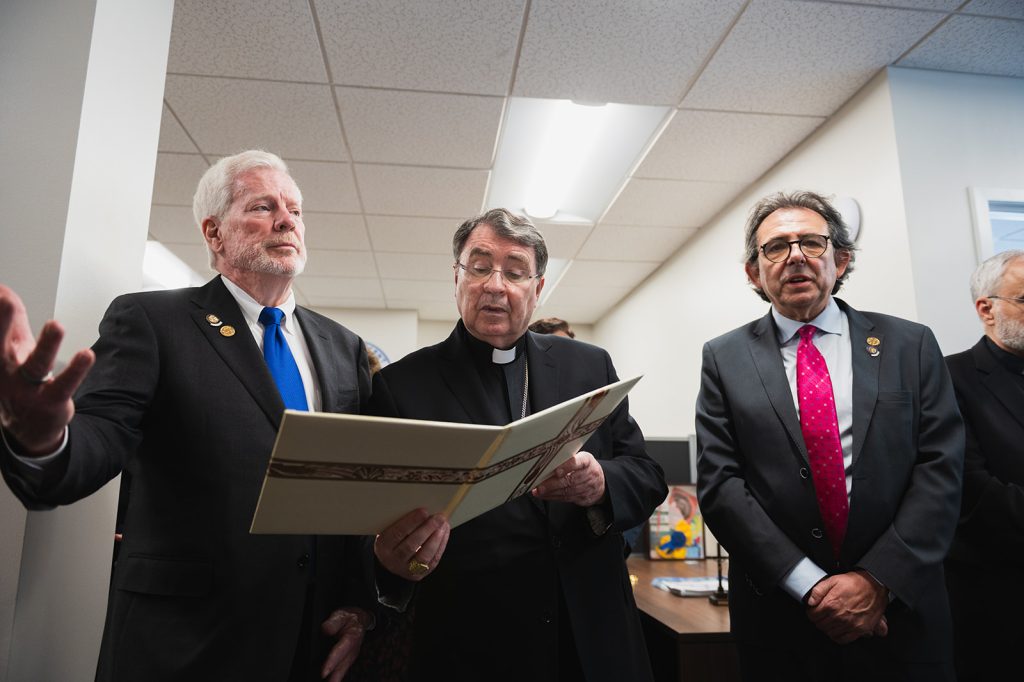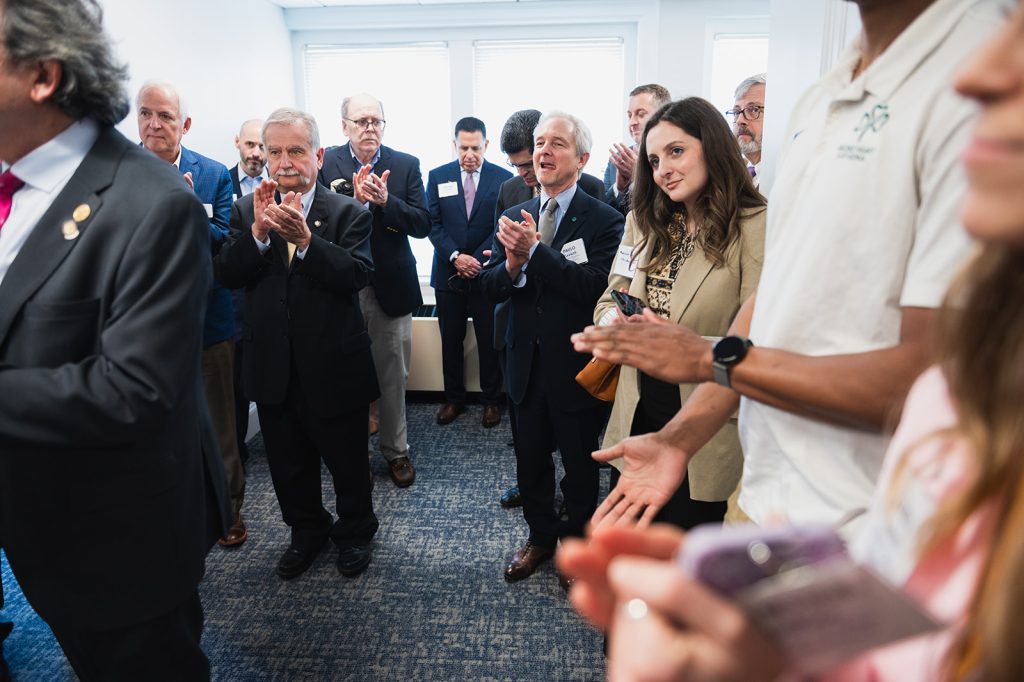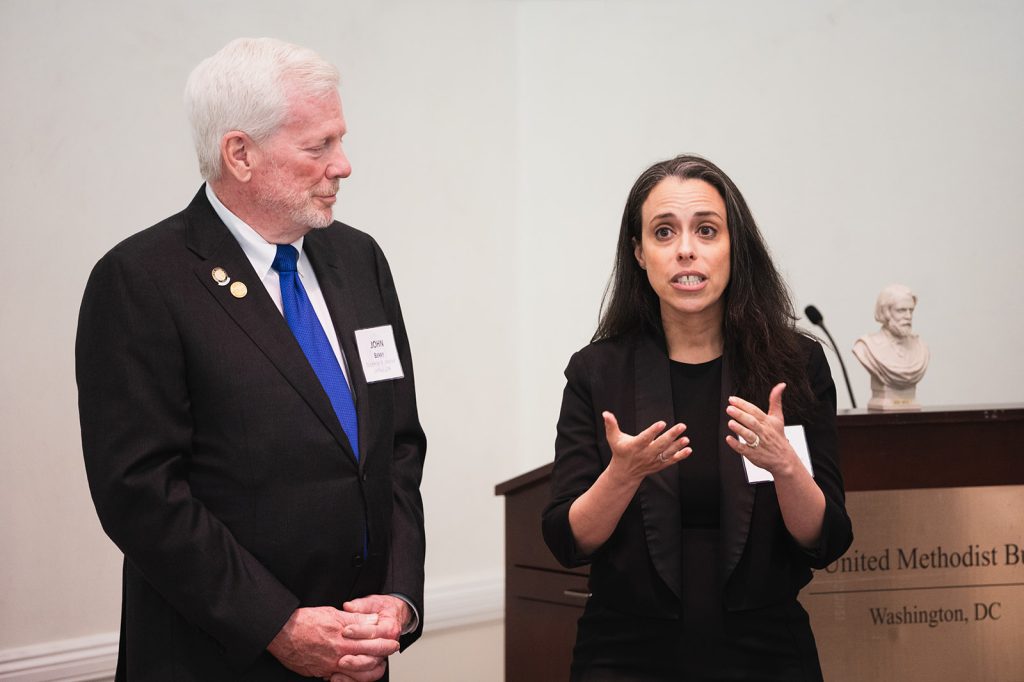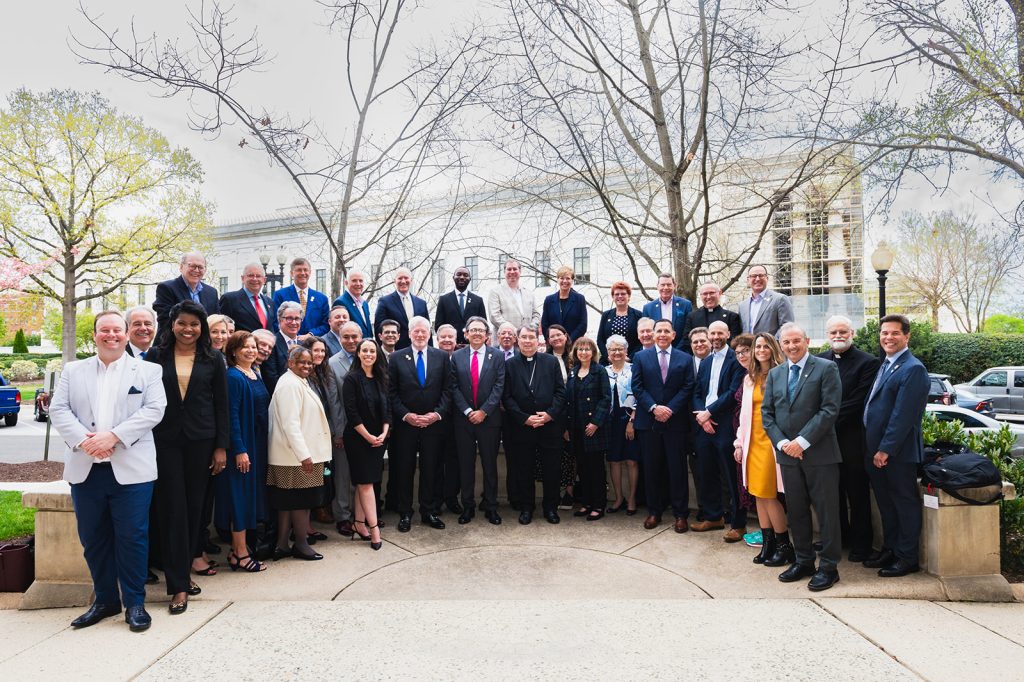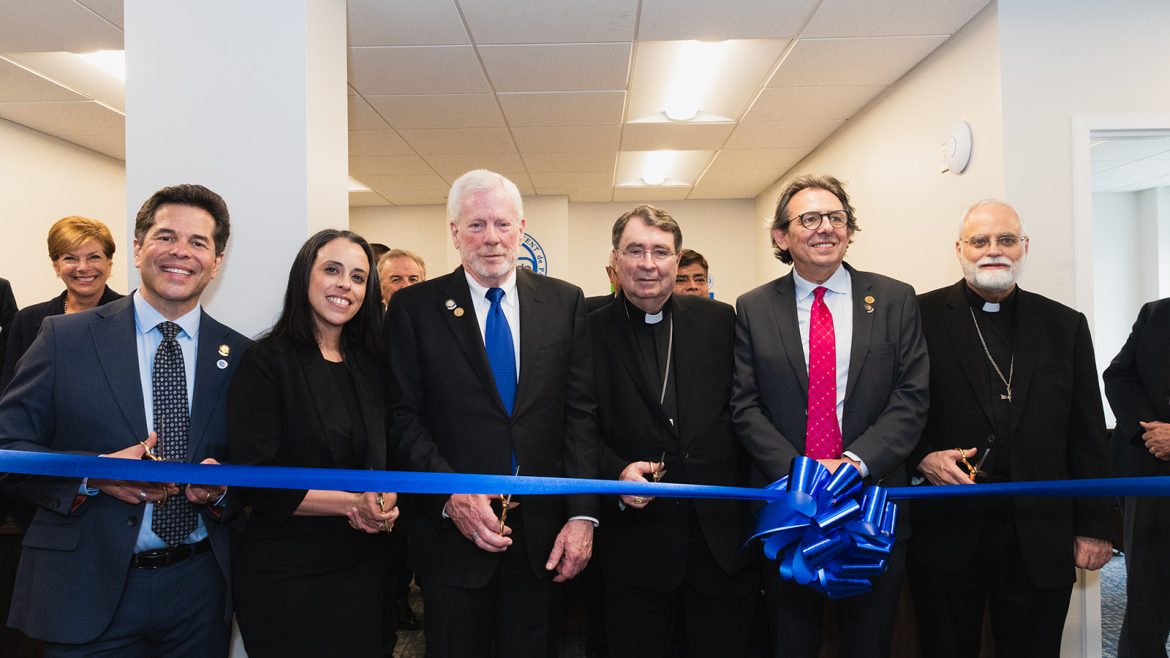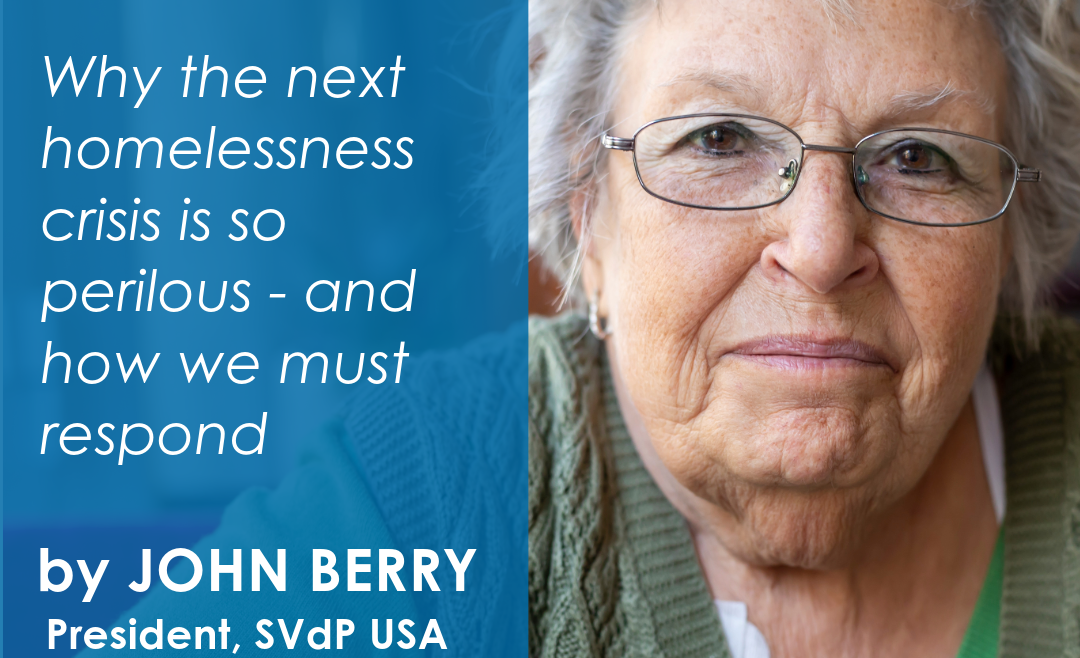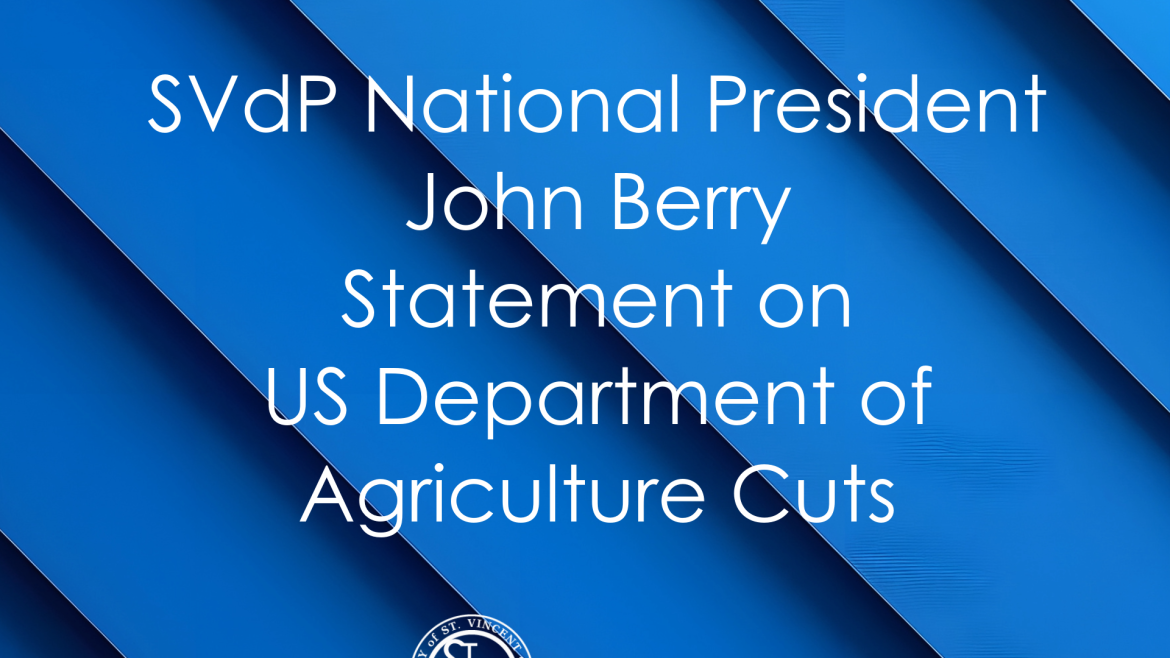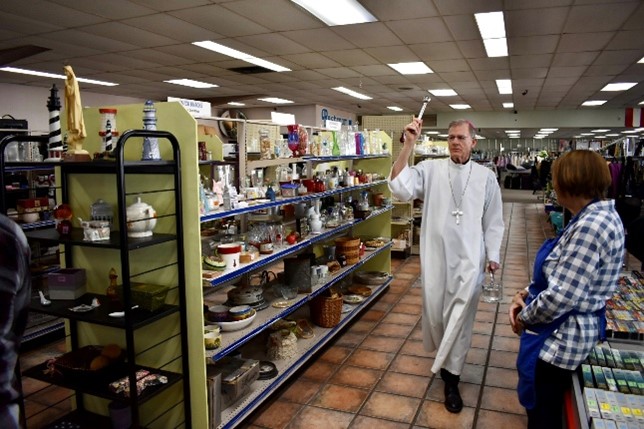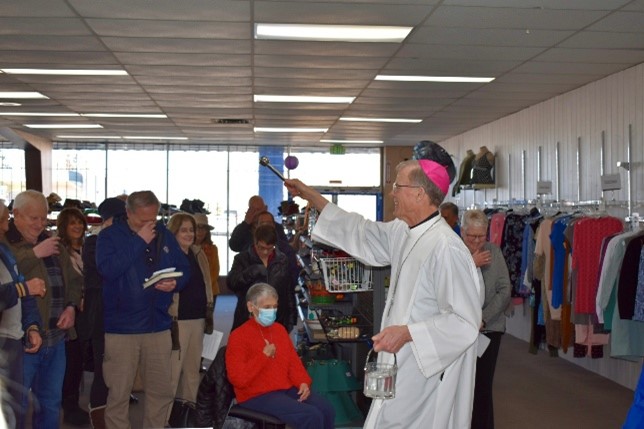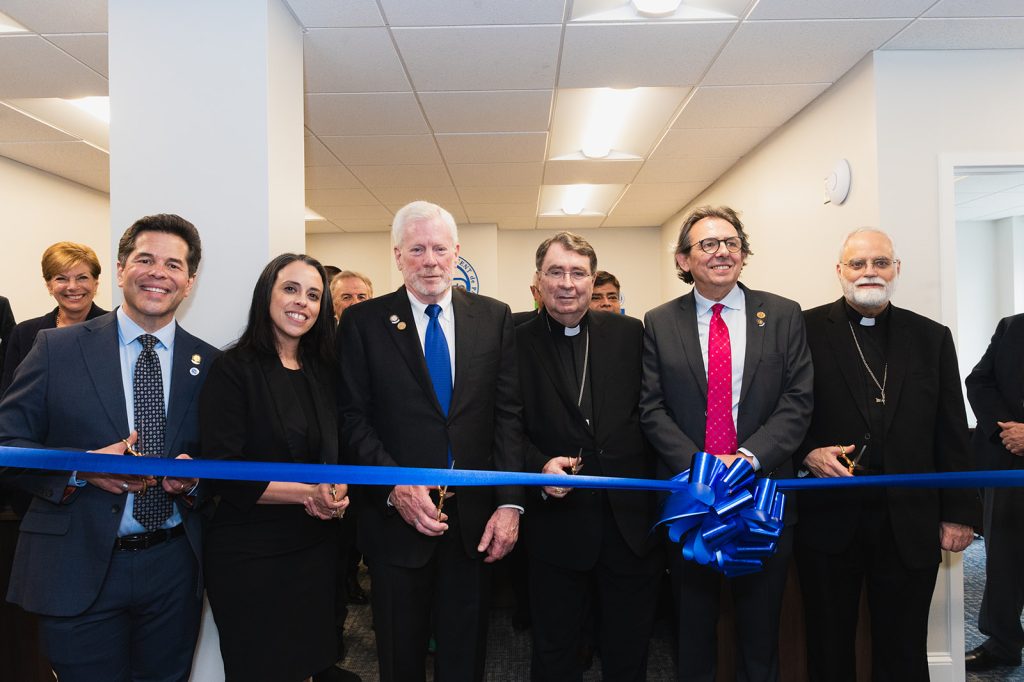
Society of St. Vincent de Paul USA opens advocacy office in Washington D.C.
On Friday, April 4, the Society of St. Vincent de Paul USA (SVdP) officially opened its new office in Washington D.C. as it seeks to ramp up efforts to advocate for those on the margins. As one of the largest lay Catholic organizations in the nation, SVdP hopes having a permanent presence in Washington D.C. will help its efforts to raise the profile of key issues related to poverty, while advocating to policymakers on behalf of those who experience its daily effects.
The office will be led by Ingrid Delgado, SVdP’s first National Director of Public Policy and Advocacy and formerly the Associate Director of Government Relations at the U.S. Conference of Catholic Bishops.
The Grand Opening Ceremonies began with Mass celebrated by Cardinal Wilton Gregory at the Vincentian Chapel at the National Shrine of the Immaculate Conception.
Then the ribbon cutting ceremony was held at the new office space at 110 Maryland Avenue, NE Suite 506, Washington DC 20002, which is located just steps away from the United States Supreme Court. National President John Berry provided some opening remarks, and introduced special guests to the event, before the ribbon cutting to mark the opening of the office.
In attendance was International SSVP President Papal Nuncio, Archbishop Andrew Bellissario, National CEO Michael Acaldo, new National Director of Public Policy and Advocacy Ingrid Delgado, the SVdP USA Board of Directors, and the SSVP-CGI International Board of Directors.
Last year, SVdP USA served more than 5 million people across the U.S. and provided more than $1.7 billion in aid, including $60 million in emergency financial assistance to prevent evictions and keep people housed. Often known for the thrift stores in cities and towns around the country, SVdP offers programs that are tailored to the specific needs of the communities it serves. Learn more about joining in our work at svdpusa.org.
